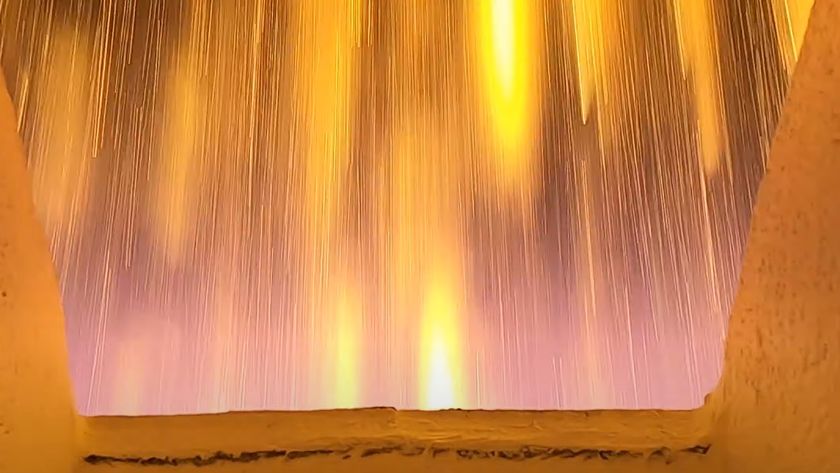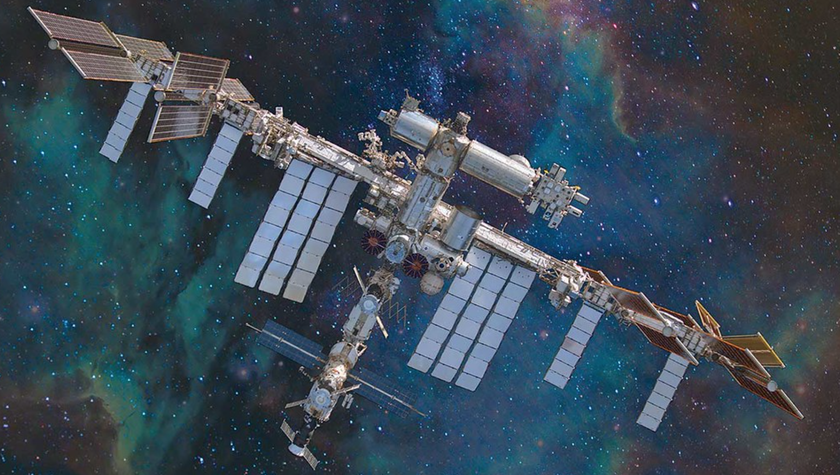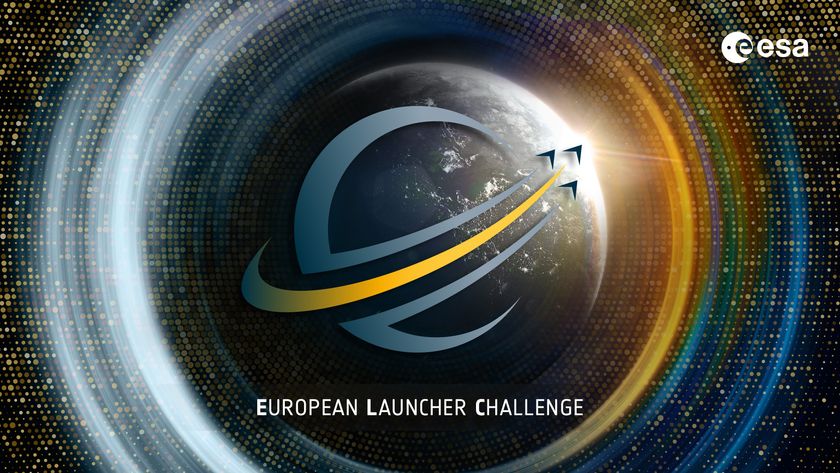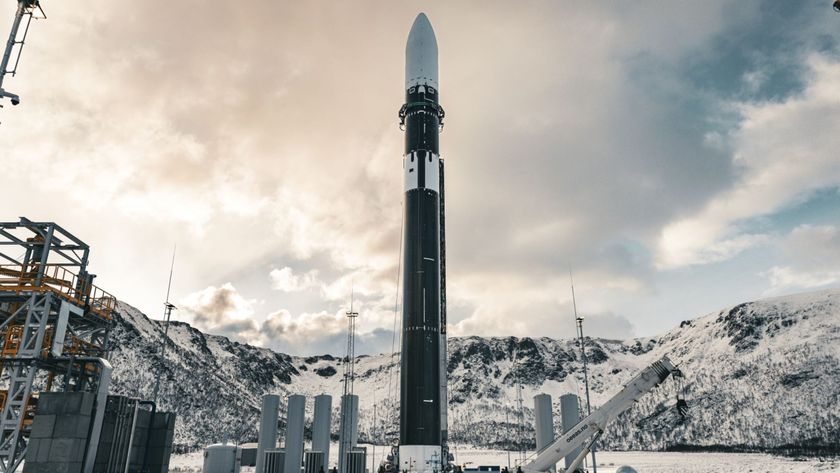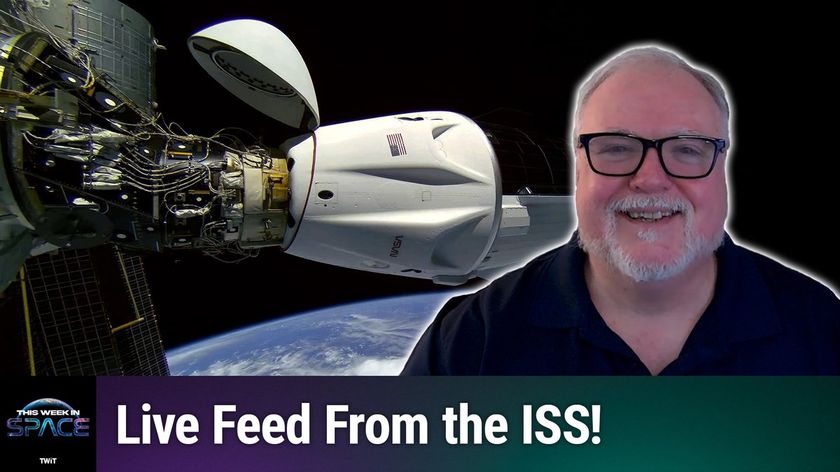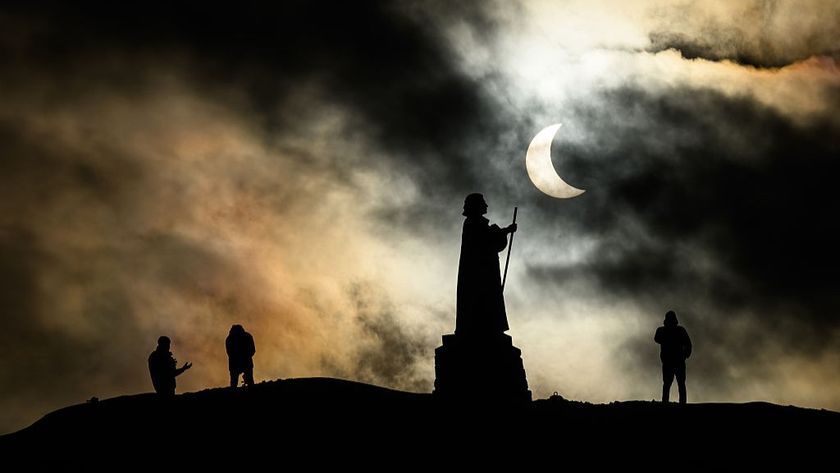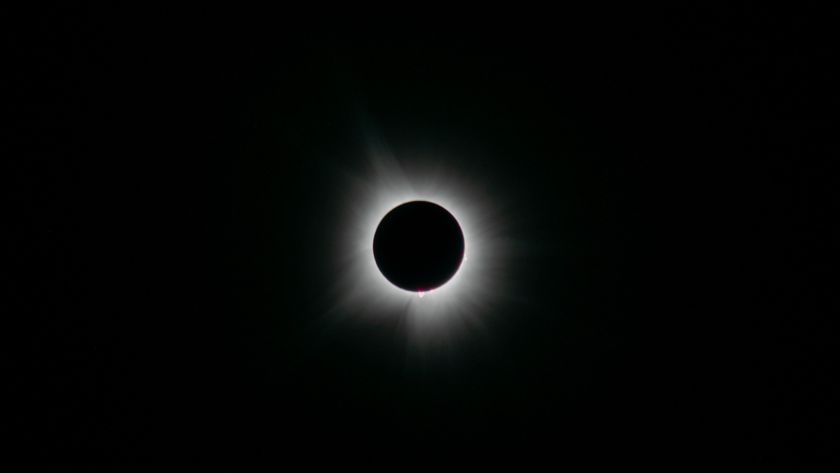Private space launches could double by 2028, FAA says
We could see up to 338 U.S. commercial launches a year by 2028, according to an FAA forecast.
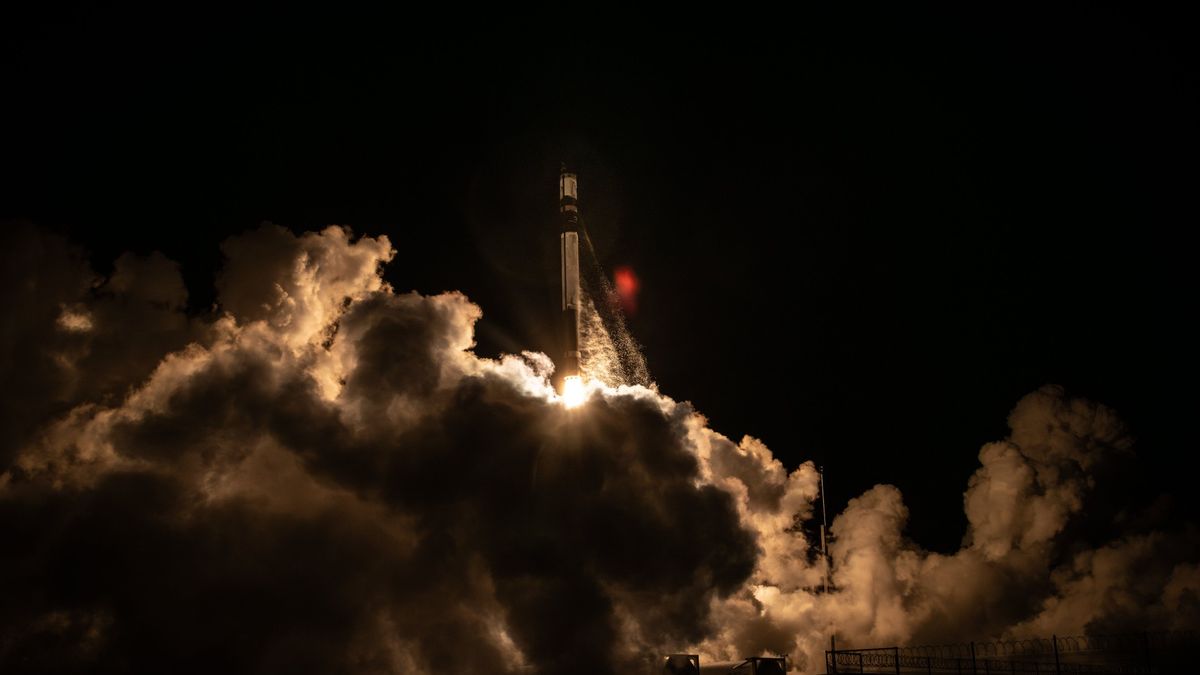
The U.S. Federal Aviation Administration (FAA) expects the number of licensed launches each year to continue rising steeply, potentially doubling in just four years.
The FAA's Office of Commercial Space Transportation oversees the commercial space industry, issuing launch licenses and regulating private launch vendors to ensure public safety and compliance with national security concerns and international law. In a blog post published July 5, the FAA's associate administrator for Commercial Space Transportation, Kelvin B. Coleman, lauded the success of the office as it oversaw its 800th commercial launch — Rocket Lab's 'Owl For One, One For Owl' mission.
Coleman writes that the office is seeing "swelling demand" for launch licenses and other services, adding that while there are still two months to go in fiscal year 2024, the office has already surpassed the record number of launches seen in 2023. And it's only going up from there. In fact, the FAA predicts that it could oversee 338 launches by 2028, compared to its forecasted 156 for this fiscal year.
"By fiscal year 2028, we are forecasting nearly triple the fiscal year 2023 number of authorized operations due to greater use of reusable vehicles, the demand for commercial satellite services and the growth of commercial human spaceflight missions," Coleman wrote in the post.
The FAA's space office also touted its safety record in the post, noting that "no member of the public has ever been lost or seriously injured from an FAA-authorized launch or reentry operation."
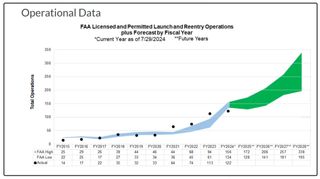
The rising demand for private launches comes as the barriers to reaching orbit are lowering, thanks in large part to the reusability of SpaceX's Falcon 9 rocket, which has brought costs launch costs down dramatically. SpaceX is also launching large numbers of its Starlink satellites monthly to build out its internet constellation, bringing launch totals ever higher.
But SpaceX isn't alone. New launch companies are entering the industry each year, securing contracts to launch private payloads or missions contracted through government clients like NASA or the U.S. military.
Get the Space.com Newsletter
Breaking space news, the latest updates on rocket launches, skywatching events and more!
Private companies like Axiom Space are sending their own crews to the International Space Station. And even suborbital space tourism companies like Blue Origin and Virgin Galactic are helping push the FAA's commercial space launch totals ever higher.
Join our Space Forums to keep talking space on the latest missions, night sky and more! And if you have a news tip, correction or comment, let us know at: community@space.com.

Brett is curious about emerging aerospace technologies, alternative launch concepts, military space developments and uncrewed aircraft systems. Brett's work has appeared on Scientific American, The War Zone, Popular Science, the History Channel, Science Discovery and more. Brett has English degrees from Clemson University and the University of North Carolina at Charlotte. In his free time, Brett enjoys skywatching throughout the dark skies of the Appalachian mountains.
-
TheCoolBrit When Starship starts launching Starlinks next year the number of US FAA launches may well go down initially.Reply -
ZZTOP Reply
Which means that private launch accidents will double to quadruple in the same time periodAdmin said:The U.S. Federal Aviation Administration (FAA) expects the number of licensed launches each year to continue rising steeply, potentially reaching 338 by 2028.
Private launch numbers will double by 2028, FAA says : Read more

